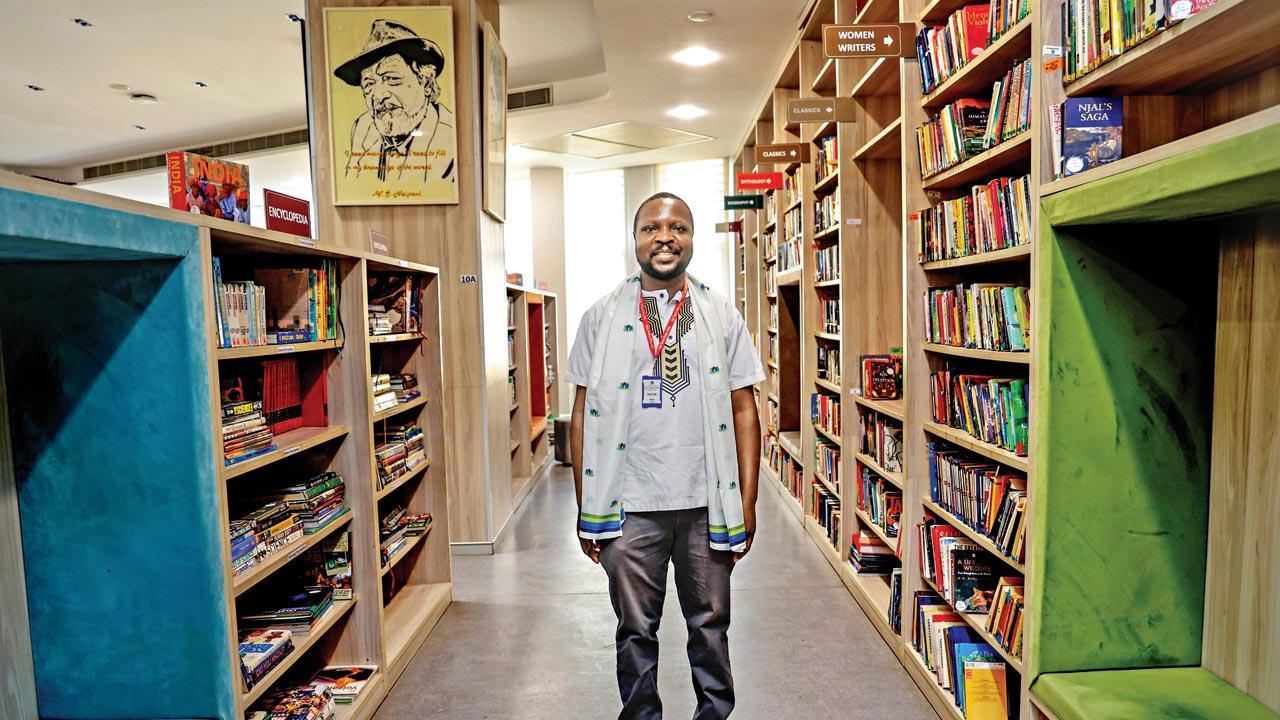Child prodigy innovator William Kamkwamba wants young minds in India to brainstorm about innovation in the unfancied sectors of food and agriculture

In 2019, Netflix made The Boy Who Harnessed The Wind, which was based on Kamkwamba’s life, which starred and was directed by Oscar-nominee Chiwetel Ejiofor. Pic/Nishad Alam
William Kamkwamba became a global story at the age of 14, back when the concept of Internet virality did not exist. At 36, he looks wiser, speaks more fluently and believes innovation will have to become a collective, global undertaking if humanity has to have a chance at survival. “A lot of people I meet around the world, have this image of Africa, that any time we step out of our homes we are surrounded by wild animals,” he says, cheerfully, as he is prized away from curious students of the Shiv Nadar School, Noida; students who have just heard him speak on matters of sustainability and the urgent need for innovation that is agrarian in nature. There is no one better person, after all, to remind us of the gospel that the revolution will be, and maybe will have to be, youthful.
Born and brought up in Malawi, William became a cherished underdog story, after he built a windmill out of junk and scrap to produce electricity for his home. From a frothy blog story, to the Wall Street Journal through a nervy TED Talk, Kamkwamba found the spotlight by accident. Almost two decades later, he says, his road to learning continues to stretch itself. “I’ve now had the privilege of travelling the world, and wherever I go, I think of gathering information and wisdom that I can bring back to the problems in Malawi.” Kambwamba absorbed physics through rudimentary material, the odd book and by applying the one tool that he believes is key to all forms of innovation–asking questions. From discarded metallic parts, a broken bicycle and some “madness”, he generated enough power to run a handful of bulbs, a couple of radios and offer free charging for anyone who could back then, afford a mobile phone.
Kamkwamba is visiting India for the first time. His focus, he tells Mid-day during a meeting in New Delhi, is to inspire young minds to think about innovation in unfancied sectors like food and agriculture. “I come from an agrarian economy. And no matter how we think of the future, food will always remain an integral part of its image. A problem like climate change is everyone’s to deal with, not just limited to the African continent,” he says. Forced to drop out of school, William’s education was revived by patrons who stepped in after hearing about frugality of his work, especially the circumstances he has built with and against. “When I look back, I think I would have liked to have the tools of good education. I worked with the basics, because that was enough. But to actually build something path-breaking, education and access are essential.”
The narrative of innovation since his days of fame has been wrested by big-tech companies operating out of suave, urban centres. They aren’t necessarily problem-solving in origin, or even human-first but they exert undeniable influence over the socio-political map of the world and the problems it considers most urgent. In that context at least, there needs to be a global drive to better appreciate the obvious challenges of our age. “People need to be sensitised to the problems of the farmer and those trying to feed the world. There is a lot of opportunity for innovation in this sector. In Malawi, for example, William says, “most work is still being done by hand. I’m confident technological solutions can be put in place to proportionally, at least, make this work easier.” Africa, William argues, could well lead a movement that, for a change prioritises life over lifestyle.
In 2019, Oscar-nominee Chiwetel Ejiofor, directed and co-acted in a Netflix film based on William’s life titled, The Boy Who Harnessed The Wind. You can tell, the junkyard inventor still gets a kick out of speaking with young students who look overawed, by the sheer scale of odds that William has overcome to reach notable acclaim. In that famous Ted talk from 2007, a hall full of listeners falls silent, when a young William shows a picture of his home. The stark poverty, the earthiness, the screeching rawness of it all takes a moment’s breathlessness, worth of getting over. A moment that William has spent a lifetime with.
Back home Kamkwamba is working on a research centre where he wants to encourage, fund and shape the future’s best ideas. His agrarian concerns, though, face a cultural obstacle, because innovation currently seems beholden to the comforts of the privileged. Applications that deliver, package or instantly annex your entitlement. “It’s crucial that the world comes together because we will have to figure out a way to generate a lot of food for a lot of people. Everyone’s got to eat. But the problem doesn’t seem so urgent to those who don’t know what it’s like to miss a meal, to not eat for days.”
 Subscribe today by clicking the link and stay updated with the latest news!" Click here!
Subscribe today by clicking the link and stay updated with the latest news!" Click here!










